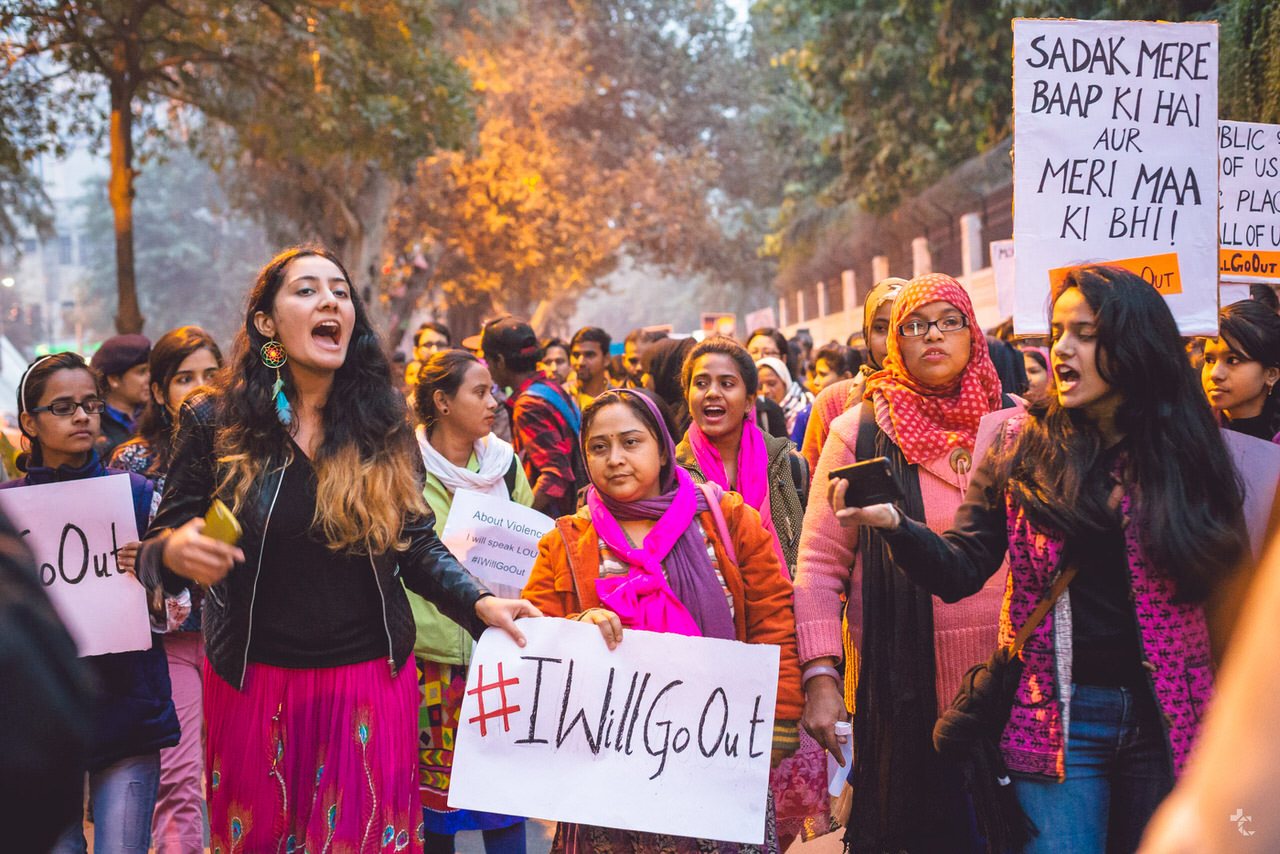Sexual harassment is pervasive. It does not solely happen in one kind of a place or with one kind of a woman. The danger lies in its ability to occur at any time and anywhere as the perpetrator is more often than not somebody the victim knows. In compliance with the myth that women are only harassed in public spaces, we are made to believe that policing our behaviour will guarantee safety.
Normalising the idea that women too can loiter or wander about streets and outside shops, allows us to reclaim these spaces. By reclaiming them, we assert that women are also part of the society and have their own rights to public spaces. Here is a list of women-led projects and campaigns that are advocating for our rights to mobility and freedom.
1. Blank Noise
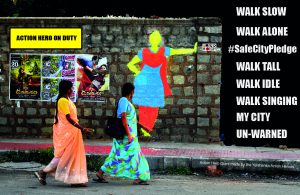
Image Source: Blank Noise
The Bangalore-based collective, Blank Noise, is targeted towards battling sexual harassment. Its Action Heroes (volunteers who have vowed to eradicate sexual and gender based violence) have designed and executed multiple interventions specifically towards helping women reclaim their rights to move about as they please.
Run between 2006 and 2009, ‘Being Idle‘ invited women to do exactly that – be idle in public spaces. Their Action Heroes would loiter, make eye contact with passersby in order to unlearn fears regarding public spaces and establish their presence. ‘Walk Alone‘ aims to solve the problem by doing exactly what makes us, as women, uncomfortable – walking alone in unfamiliar spaces.
They also ran a stencil project called ‘Night Action Plan‘ where the Action Heroes stepped out late at night to mark the city streets and pavements with eight reports of sexual violence. The stencils challenged the perception of street harassment happening to women of a ‘certain’ kind.
Also read: Women in Public Spaces: Do Public Spaces Only Belong To Men?
Currently, Blank Noise’s ‘Meet to Sleep‘ campaign has been built in over 25 cities in India and Pakistan by approximately 500 women. It invites women and girls to take naps in their public parks and uses sleep as a tool of protest in order to assert the right to live a life free of fears.
2. A Woman Was Harassed Here (AWWHH)
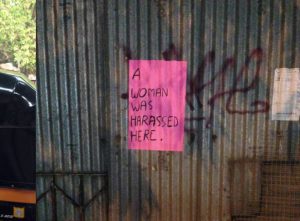
Image Source: Nor Black Nor White
AWWHH is Aqui Thami’s street art project. She went about Mumbai wheat-pasting bright pink posters that read “A Woman Was Harassed Here”. These posters were put up in areas where Aqui Thami or her friends had experienced some form of harassment. The posters were reflective of how pervasive harassment can be and an attempt to encourage discourse on harassment. However, the campaign received backlash in that they would be taken down, sometimes in less than a day. Aqui then collaborated with NORBLACK NORWHITE to have the same text printed on t-shirts and tote bags, ensuring the message wasn’t as easily done away with.
3. Pinjra Tod
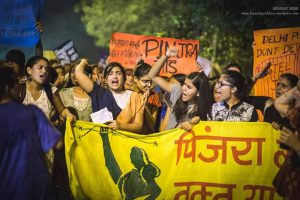
Image source: Pinjra Tod
Pinjra Tod is a Delhi-wide collective born out of the need for non-discriminatory rules and practices in female students’ hostels and PGs. It tackles issues regarding female students’ experiences such as restricted accessibility and mobility, moral policing, lack of sufficient hostels, fee-hikes and the non-existence/non-functioning of sexual harassment complaints committee cells.
The collective’s work primarily focuses on breaking the ‘security narrative’ by demanding that ‘safety’ not be used as reasons to restrict women’s freedom. In 2015, the collective’s ‘Bus Teri Meri, Chal Saheli’ (The bus is yours and mine, come along sister) campaign encouraged women to use buses at night as a way of normalising the idea that women use public transport during late hours too.
4. #WhyLoiter
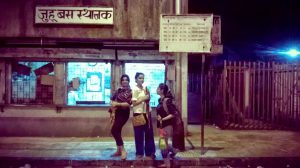
Image source: Why Loiter
In December 2014, women started using the Twitter hashtag #WhyLoiter to launch a new public movement. The campaign encourages women to go out and deliberately loiter or simply hang around in public spaces. Women are often expected to be outside only if there is a purpose — of going somewhere or waiting for somebody. This campaign was inspired by a book of the same name, that studied women’s occupation of public spaces in Mumbai. The focus of this campaign was to encourage women to reclaim their right to do nothing but walk around. The idea is that women must stop living in fear, and men need to start getting used to that.
5. #IWillGoOut
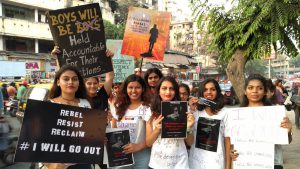
Image Source: I Will Go Out
In the aftermath of a mass molestation incident in Bengaluru which was followed by many insensitive and sexist comments from politicians, hundreds of people took to the streets in about thirty cities across India. The I Will Go Out protests’ reach was wide as the movement saw people not only from metropolitan cities, but also from smaller ones. The movement advocated for women’s right to go out whenever they want without having to face harassment.
Also Read: Pictures From 30+ #IWillGoOut Marches From Cities & Towns Of India
6. Girls at Dhabas
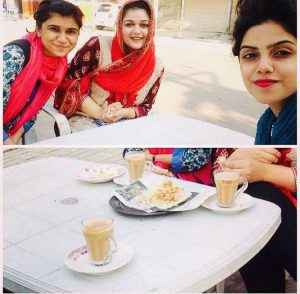
Image Source: Girls At Dhabas
In Pakistan, Girls at Dhabas is a multi-city campaign for women to occupy public spaces. They encourage women to enjoy ‘a chai and chat’ at dhabas, spaces that are traditionally dominated by men. Girls at Dhabas has also held bike rallies in the past. Their aim is to not only have women occupy public spaces but also change how they do so. Women go out to dhabas either alone or with girlfriends and enjoy an evening at a dhaba. The campaign has women tweeting and posting pictures on Instagram using their #GirlsAtDhabas hashtag too.
Also read: Girls On Bikes: Cycling In Lahore In Protest And Celebration
This is by no means an exhaustive or representative list. Suggestions to add to this list are welcome in the comments section.
Image Credit: Tarun Chawla for Feminism in India
About the author(s)
Aditi is a 20 year old studying political science. She enjoys learning languages, and if given the choice, would do that for a living. Her interests include but are not limited to bedroom pop, intersectional feminism and hummus.
